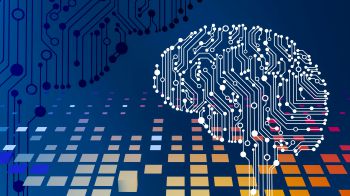The rise of AI: can we use it for studying?
Posted on behalf of: Tugce Erten
Last updated: Thursday, 21 March 2024

When I first heard about ChatGPT around a year ago now, I approached it with apprehension; would this new technology just encourage people to use their brains less?
I first tried it out in January and, whilst I haven’t used it much when it comes to academic work so far, I have found it useful both for helping me understand an article for my seminar when I’m short of time (it can summarise it) and also when I don’t understand certain sentences or a certain slide in a lecture when it can break it down for me and explain it.
Is there a place for AI in university work?
As technology is developing, it is being integrated into our daily life. For example, we all put our completed essays into Grammarly to check for grammar errors, instead of going through it ourselves and looking for them, which is what would have been done in the past.
Many websites have also released AI options and it is accessible and its best 24/7, so you don’t have to wait for a response from a human being.
Here are some ways you can use AI to aid you in your studies:
- For those who study creative degrees, AI may be helpful in brainstorming ideas and exploring unique options for what you can create
- Summarising articles
- Clarifying sentences
- Explaining topics
- Checking your grammar
- You can input anything like a practice answer for an exam and receive immediate feedback.
It is important to be wary that AI probably cannot write the way that you can; before writing this blog article, I put in one of my previous essay questions into ChatGPT to compare and the essay it gave back was not of the quality expected of university students.
The dangers of AI
Reducing creativity: People can become over reliant on AI and this may hinder original thought and creative development.
A lack of emotional intelligence: There are many complex processes that go on in our brains and a computer simply cannot capture that.
Plagiarism concerns and personation: If you get artificial intelligence to write something for you, it has generated that piece of work from other’s work raising an ethical dilemma
It can also be misused when it comes to exams and assignments, therefore meaning that students have not produced their own work. Using AI to complete assessments counts as “personation,” which is considered to be a form of academic misconduct by the University.
The question of whether it is replacing humans: There are wider societal implications to the use of AI, such as it’s potential to render certain jobs obsolete.
Using artificial and human intelligence together
Artificial intelligence can be useful and used as a starting point for creativity. However, ultimately, nothing can take away from the authenticity of the work that humans do, factoring in the complexities of life with emotions and logic tangled up. All of us are unique and we all come up with different ideas and AI cannot necessarily replicate what goes on in your mind. Ultimately, using both artificial and human intelligence together might be the best solution. AI can be useful and may excel at certain tasks, but it is not better than humans.
Tugce studies Psychology with Neuroscience. She enjoys going for walks in nature and attending dog-walking society at uni.

